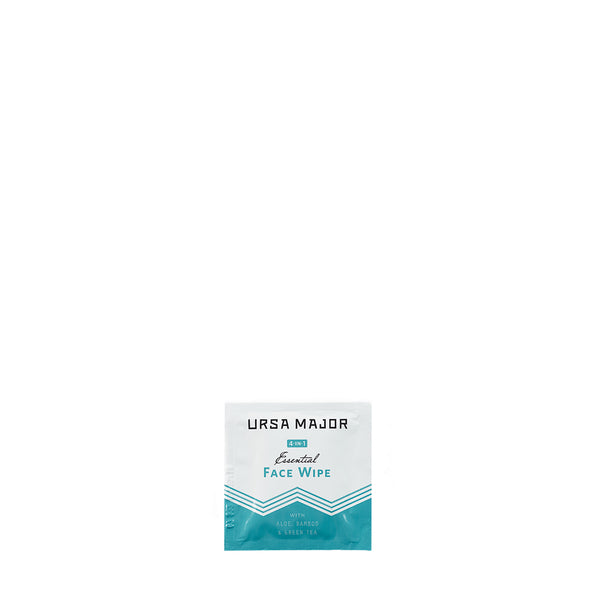Recent Articles
An interview with Sara Szal Gottfried, MD
Sleep problems and brain fog are two common symptoms of perimenopause, but they can occur for a variety of other reasons, too — poor gut health, for example. What are the best ways to approach these issues?

We couldn’t think of a better person to ask than Dr. Sara Szal Gottfried — a renowned hormone expert, Harvard-educated OB/GYN, and MIT-trained bioengineer who practices evidence-based integrative, precision, and functional medicine. The author of four New York Times bestselling books about hormones, nutrition, and health, she’s our founder (Dara)’s favorite women’s health authority and our go-to expert on all things related to perimenopause.
**
Dara: What are your top tips for better sleep?
SARA SZAL GOTTFRIED, MD: I use sleep trackers with nearly all of my patients and clients. In a recent study of six wearables, several rose to the top, and the researchers confirmed what I’ve seen in my medical practice: that Oura ring tends to be the best, along with the Somfit forehead device and Whoop wristband. Most of my experience is with Oura, which has been subject to rigorous scrutiny in terms of accuracy. They all make an educated guess about your sleep stage information.
Of course, they are not as accurate as the data you get when you measure your sleep with polysomnography (a clinical sleep study that checks brain activity while you sleep), but are they accurate enough? The answer is “probably.” Consumer sleep trackers are reasonably accurate at measuring total sleep time and at tracking both light sleep and rapid eye movement (REM) sleep.
You can use this information to improve your sleep. I like to use them for directionality, such as if your REM sleep is low, that usually means you need to go to bed earlier. Or, if you don’t have enough deep sleep, you may need to work on gut health.
When I first began tracking my sleep about five years ago, my main problem was low deep sleep, usually an hour or less. Once I rehabilitated my gut following the elimination diet and the sleep principles I share in THE AUTOIMMUNE CURE, my deep sleep is regularly one to two hours in duration — I’ve found that gut health is at the root of better deep sleep for me and others.
If you are not ready to invest in a sleep tracker, listening to your body will give you the clues you need to decipher your quality of sleep. Journal in the morning how well rested you feel and track what routines were helpful in generating that well-rested feeling.
7 to 8.5 hours of sleep is associated with the longest healthspan. If I don’t get seven hours, I plan a nap that day.
If you find the quality of your sleep is not good, consider trying the lifestyle changes listed below to see if any aspect of sleep improves:
- Measure your baseline
- Reestablish your circadian rhythm:
- Get natural sunlight first thing in the morning
- Eat and drink at the right times
- Exercise before noon
- Take the TV, phone, and other devices out of your bedroom
- After sunset, avoid artificial light at light (ALAN)
- Take sleep nutrients (magnesium glycinate, phosphatidyl serine, valerian, passion flower, chamomile, and lemon balm)
- Put yourself to bed like you would a small child
- If you’re still not sleeping 7 to 8.5 hours a night, consider a wearable mentioned above.
Dara: What are your top tips for brain fog? What types of memory lapses in perimenopause are normal (and what would indicate that it’s a different issue)?
SARA SZAL GOTTFRIED, MD: Brain fog is a common symptom, especially as women begin to get older but it should never be dismissed as normal. Starting around age forty, the female brain slows down in metabolic rate, known as cerebral metabolism, and symptoms of brain fog may develop. Estrogen is one of the most important nutrients that protects your brain from decline.
But hormones are not always the cause and brain fog can arise from a number of root causes. Toxin exposures, lack of protective nutrients, leaky gut, dysbiosis, decreased blood flow to the brain, leaky blood-brain barrier, and inflammation. Remember: inflammation is the cornerstone of all chronic disease. When these problems persist, you feel foggy-headed, which may affect your relationships, reactivity, temper, and decision-making capacity.
The gut and mitochondria are often the first places that I look for the low-level inflammation that can contribute to an inflamed brain. Food intolerances such as dairy, grain, sugar, or nightshades may be causing a problem for you. Lifestyle choices can make you inflamed—things like sitting too much but sleeping too little—can rob you of the clearheadedness that you deserve.
Leaky gut and dysbiosis are common causes of brain fog. Here are few things to repair your gut:
- L-Glutamine.It’s like a seal for the gut wall: it increases the height of intestinal villi, stimulates gut cells to grow, and maintains gut integrity, which may reverse leaky gut, leaky brain, and brain fog. Dose: 1,000 mg 3x/day before meals.
- Prebiotics/Probiotics.These can restore your microbiome and reduce inflammation—all of which can help clear brain fog. Focus on prebiotics to feed your good microbes and probiotic food like miso, tempeh, sauerkraut, and kimchi to maintain your microbial diversity. A word of caution, though. PRObiotics may worsen brain fog, especially if you have dysbiosis.
- Phosphaditylserine. Clinical studies show phosphatidylserine improves attention, arousal, memory, and verbal fluency in aging people with cognitive deterioration. It seems to work best in people with relatively good cognitive performance, according to one study. As you get older, you may not make enough phosphatidylserine. The good news is that when you take phosphatidylserine as a supplement, your body absorbs it well and it crosses the BBB. Dose: 300 to 800 mg per day, for at least 12 weeks.
- Citicoline. It may help with brain fog or mild cognitive deficits. It’s considered an old supplement that may have new tricks for clearing neuroinflammation. Dose: 1,000 to 2,000 mg daily.
- Omega-3s. EPA and DHA protect the brain body from inflammation. The combination of DHA and EPA helps patients with mild cognitive impairment, but not in Alzheimer’s disease as a single treatment. That suggests there might be a timing issue: sooner may be better. Taken together, DHA and EPA may limit age-related brain decline by boosting your body’s own repair mechanisms. Dose: about 1,200 to 1,500 mg EPA and 500 to 1,000 mg DHA
- Vitamin B12.Absorption of vitamin B12 wanes as you age, and it’s worse if you’re mostly plant-based like me. Subclinical B12 deficiency occurs in up to 26% of the population. Dose: Methylcobalamin 500 to 1,000 mcg daily.
Dara: Migraines seem to be a problem for a lot of people. How is this related to perimenopause, and what can be done?
SARA SZAL GOTTFRIED, MD: Wild fluctuations in estrogen combined with low progesterone may lead to migraines. Working on hormonal imbalances is a good place to start — our Perimenopause 101 and Perimenopause 102 have a great set of resources to begin with.
Note from Dara:
Perimenopause and menopause can also have a dramatic effect on skin and hair — much of it, unfortunately, unwelcome. We have many years of experience helping our Ayla community through it; you’ll find our favorite recommendations in this Peri/Menopause Toolkit. We also highly recommend booking a complimentary check-in with one of our Guides to help you narrow down the options, especially if you’re noticing changes in your skin and hair.
But we also know that products can’t do all the heavy lifting on their own; if you’re perimenopausal, your body is going through some significant shifts, and addressing those more systemically will also benefit your skin and hair health. We couldn’t be more thrilled to share Dr. Sara Gottfried’s knowledge to give you a running start. Endless thanks to Sara for being such a gracious guide for us all!
If you missed her Perimenopause 101 interview, you’ll want to check that out — along with our other articles on perimenopause and menopause — on our blog.
About Dr. Gottfried:
Sara Szal Gottfried, MD is a physician, researcher, author, and educator. She graduated from Harvard Medical School and MIT, and completed residency at UCSF, but is more likely to prescribe a CGM and personalized nutrition plan than the latest pharmaceutical.
Dr. Gottfried is a global keynote speaker and the author of four New York Times bestselling books about hormones, nutrition, and health. Her latest book is called THE AUTOIMMUNE CURE (published in March 2024).
Dr. Gottfried is Clinical Assistant Professor in Dept. of Integrative Medicine and Nutritional Sciences at Thomas Jefferson University, and Director of Precision Medicine at the Marcus Institute of Integrative Health. She takes care of executives and professional athletes. Her focus is at the interface of mental and physical health, N-of-1 trial design, personalized molecular profiling, use of wearables, and how to leverage these tools to improve health outcomes. Learn more at SaraGottfriedMD.com.

















